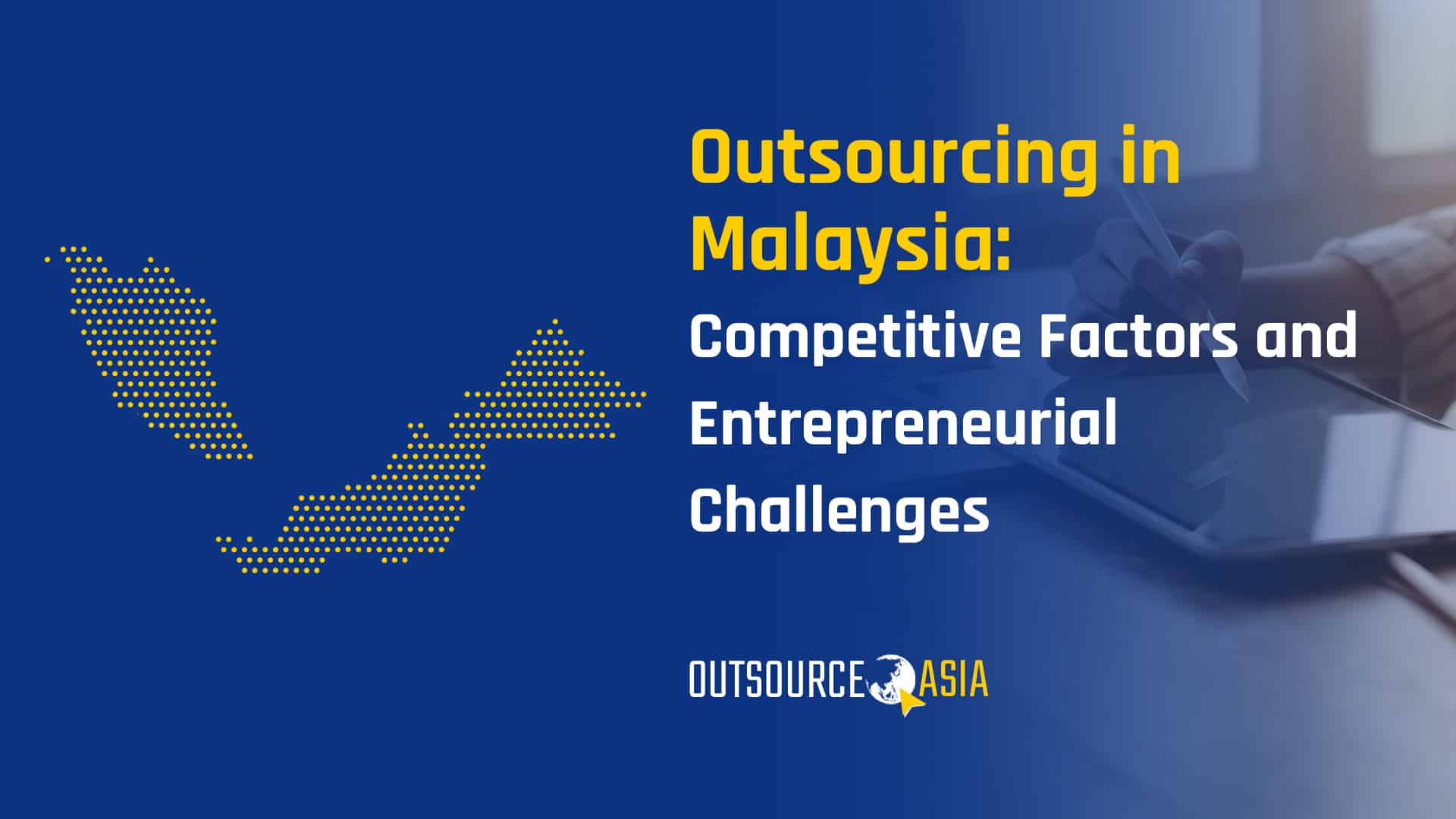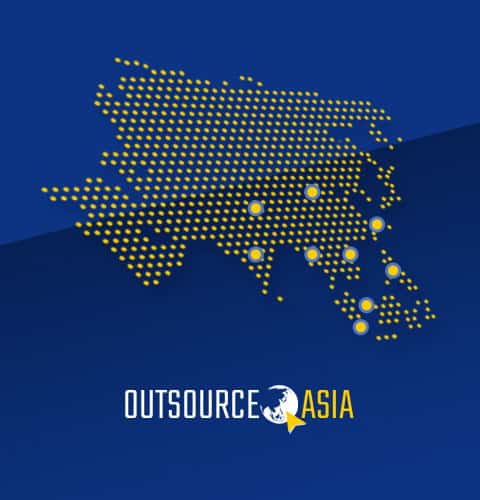
Competition for business process outsourcing (BPO), IT outsourcing, and professional outsourcing is intense in the Asia-Pacific region. While the Philippines, China, and India remain the top service providers in the global market, emerging challengers like Malaysia have upped their games.
Malaysia is a 13-state federal peninsular country that consists of two geographical regions – West Malaysia (peninsular Malaysia) and East Malaysia (Malaysian Borneo) – divided by the South China Sea. Of its 32 million citizens, about half, 15.60 million make up its entire labor force that includes 1.1 million ICT professionals employed in services, trade, content & media, manufacturing, and other ICT subsectors.
Across the APAC outsourcing market, Malaysia is still a relatively small player, but it has made large strides in investments and innovation within the industry to boost local and foreign outsourcing revenue.
The Malaysian government, through its Economic Transformation Programme (ETP), has highlighted its promising and disruptive outsourcing market as one of the Entry Point Projects (EPPs) to boost the country’s economic growth. Outsourcing subsectors such as IT process outsourcing (ITO), business process outsourcing (BPO), and knowledge process outsourcing (KPO) are categorized under NKEA (National Key Economic Area) and are hoped to help make industry-wide efforts to transform Malaysia into a high-income nation.
Its Global Business Services (GBS) sector which is an umbrella term for all shared services and outsourcing-enabled solutions is expected not only to uphold transactional excellence but also to leverage Centers of Excellence (COEs) in providing digital transformation for local and global outsourcing players in the country.
According to International Data Corporation (IDC), the BPO market alone is forecasted to deliver $1.4 billion revenue by 2021. Leveraging cloud platform solutions, mobility technologies, big data & analytics, and other digital technologies for high-end services, quality customer care, and automated business processes will make this possible.
The forecasted 8.9% compound annual growth rate (CAGR) of the ICT market will lead to $25.2 billion revenue by 2023. This is being driven by the five leading ICT solution areas which include data analytics, cloud computing, mobility, storage, and business process outsourcing.
Investment opportunities in the ASEAN region have become more alluring thanks to the development of its digital and e-commerce industries. In Malaysia, this is evident through high impact national programs and digital initiatives that aim to drive the nation into a highly productive and digitally advanced economy.
A primary driver is the adoption and application of Artificial Intelligence (AI) technologies in smart cities to maximize economic and social benefits. Secondly, there’s the leveraging of e-Commerce, Big Data & Analytics, nanotechnology, and Internet of Things (IoT) to bring massive revenue potential. Third, there’s the implementation of Mandatory Standard for Access Pricing (MSAP) to facilitate the creation of multimedia technology hubs, mature telecommunications infrastructure, and affordable high-speed Internet services.
Another thing that Malaysia is getting busy about in projecting itself as a highly attractive trade, investment, and outsourcing location is the establishment of the Digital Free Trade Zone (DFTZ). Launched by Chinese e-commerce giant Alibaba, it is considered as the world’s first electronic world trade platform (e-WTP) built outside China. It aims to capitalize on the country’s vibrant Internet ecosystem to attract both domestic and international business enterprises to position Malaysia as a global hub of the 21st digital economy.
As a result, Malaysia has easily garnered international recognition such as:
With an estimated $25 billion budget for the ICT sector, it demonstrates strong government support on all projects and activities pertaining to digital infrastructure development and capabilities. Additionally, its Ministry of Housing and Local Government (KPKT) launched the Malaysia Smart City Framework in order to transform highly urbanized areas into smart cities geared to support global businesses from a wide range of industries including the outsourcing sector.
The creation of Malaysia’s National Development Policy (NDP) and National Vision Policy (NVP) serves a two-fold purpose: 1) to ensure the local workforce are given equal opportunity in all aspects of economic activities and progress; 2) to offer balanced opportunities for global players in terms of investment ownership and control in the country.
Despite development in size and scope of Malaysia’s ICT sector which enables delivery of outsourcing-related services, it lacks an abundant supply of workers with high educational endowments particularly knowledge-based and specialized competencies.
ICT courses offered by its higher education institutions (HEI) have obsolete core curriculum, hardly reflecting and are slow to incorporate subject matters that would adequately equip future graduates with requisite skills essential for pursuing technical careers in this digital age.
Employers in the outsourcing industry are expecting job-seekers in the outsourcing industry not only to have problem-solving and creative thinking skills but also a strong technological foundation in data analysis, computational thinking, machine learning, robotics, networking, and cybersecurity.
Unfortunately, lack of ICT proficiency is driving a high graduate unemployment rate and increase in hiring of foreign workers with ICT qualifications.
In order for the Malaysian government to position itself as a global outsourcing destination, it must make innovative education reforms to narrow the already wide gap between what degree holders possess and what the outsourcing industry expects in terms of technical and soft skills. Other things to address include providing students and new graduates with internship opportunities, industrial courses, and on-the-job training options within the ICT sector.
In November 2013, Malaysia’s Personal Data Protection Act (PDPA) came into effect in an attempt to protect customer data from exploitation – a seemingly lost cause given the rise of online crime and cyber-harassment cases that has gripped the nation year after year. From a data leak of 46 million mobile phone users and 20,000 medical records to digital intrusion of millions of airline passenger accounts and web identity theft for financial gain, the cybercriminal marketplace is growing and becoming more aggressive in Malaysia.
There has been an urgent need ever since to amend the current legislation for data privacy but it has become more crucial to do so right now given that there’s an 82.5% increase in illegal online activities in the first half of 2020 alone. The government must act swiftly not only to remove itself from being the fifth worst-performing country in terms of safeguarding its citizens’ personal data but also to prevent potential millions of dollars’ worth of revenue loss.
Malaysia offers competitive outsourcing advantages, but you also should consider your company’s specific needs and requirements before entering into an agreement with an outsourcing service provider in the country. If you need more information on finding the right outsourcing partner for your business, read more here.
